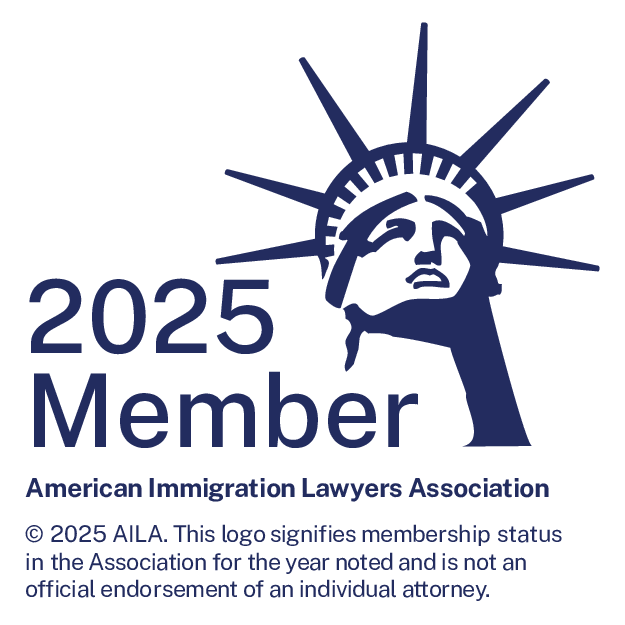National Interest Waivers (NIW)
The Employment Based 2nd preference category, known as the “EB-2,” usually requires a job offer and a PERM labor certification to test the job market to determine if there are any ready, able, and willing US workers willing to take the job at a fair wage. The National Interest Waiver (NIW) eliminates the requirement of a job offer and PERM labor certification, making it a very attractive alternative. The EB-2 NIW is available to “qualified immigrants who are members of the professions holding advanced degrees or their equivalent or who because of their exceptional ability in the sciences, arts, or business, will substantially benefit prospectively the national economy, cultural or educational interests, or welfare of the United States.”
In Matter of Dhanasar, 26 I&N Dec. 884 (AAO 2016), the Administrative Appeals Office (AAO) revised the requirements for qualification in the EB-2 NIW category.
USCIS may grant a national interest waiver if the petitioner demonstrates: (1) that the foreign national’s proposed endeavor has both substantial merit and national importance; (2) that he or she is well positioned to advance the proposed endeavor; and (3) that, on balance, it would be beneficial to the United States to waive the job offer and labor certification requirements.
The new Dhanasar standard, requires “(1) that the foreign national’s proposed endeavor has both substantial merit and national importance; (2) that the foreign national is well positioned to advance the proposed endeavor; and (3) that, on balance, it would be beneficial to the United States to waive the requirements of a job offer and thus of a labor certification.”
“Substantial merit and national importance”
In order to satisfy the first test, the AAO allows that merit may be demonstrated in a variety of areas including “business, entrepreneurialism, science, technology, culture, health, or education.” Quantifying economic impact is one way to meet the test, in addition to other evidence of national importance depending on the field, for example, in research, advances to knowledge of pure science and human knowledge, or in manufacturing, a mechanical improvement with wide ranging application may be sufficient. Further, the new requirements allow for a less than “national in scope” and work that is of “national importance” will be sufficient.
“Well positioned to advance the proposed endeavor”
The AAO applies this test by examining factors including, but not limited to “the individual’s education, skills, knowledge and record of success in related or similar efforts; a model or plan for future activities; any progress towards achieving the proposed endeavor; and the interest of potential customers, users, investors, or other relevant entities or individuals.” One need not prove that their work is more likely than not to ultimately succeed, rather proof by a preponderance of the evidence, that they are well positioned to advance the proposed endeavor is sufficient.
“On balance, it would be beneficial to the United States to waive the requirements of a job offer and thus of a labor certification”
For this final aspect of the evaluation, the USCIS was directed to weigh the protection of the US labor force, encapsulated in the PERM labor certification process against other important factors of national interest. Factors to consider include
“whether, in light of the nature of the foreign national’s qualifications of proposed endeavor, it would be impractical either for the foreign national to secure a job offer of or from the petitioner to obtain a labor certification; whether, even assuming that other qualified U.S. workers are available, the United States would still benefit from the foreign national’s contributions; and whether the national interest in the foreign national’s contributions is sufficiently urgent to warrant forgoing the labor certification process. We emphasize that, in each case, the factor(s) considered must, taken together, indicate that on balance, it would be beneficial to the United States to waive the requirements of a job offer and thus of a labor certification.” Matter of Dhanasar.
The big departure from the prior interpretation is the removal of the requirement that the petitioner prove that the completion of the PERM labor certification would somehow cause harm to the national interest. For example, it may be impractical for an entrepreneur or self-employed inventor, pursuing their project, to obtain a fair and reasonable job offer from an employer. Without an employer, the PERM labor certification is impossible.
The immigration service has looked to the following factors in determining whether a case involves something that would qualify as in the National Interest: (1) improving the U.S. economy; (2) improving wages and working conditions for U.S. workers; (3) improving education and programs for U.S. children and under qualified workers; (4) improving health care; (5) providing more affordable housing; (6) improving the U.S. environment and making more productive use of natural resources; and (7) interested government agency request.
The NIW is not for everyone, yet it can serve as a fine alternative to obtaining a labor certification.



